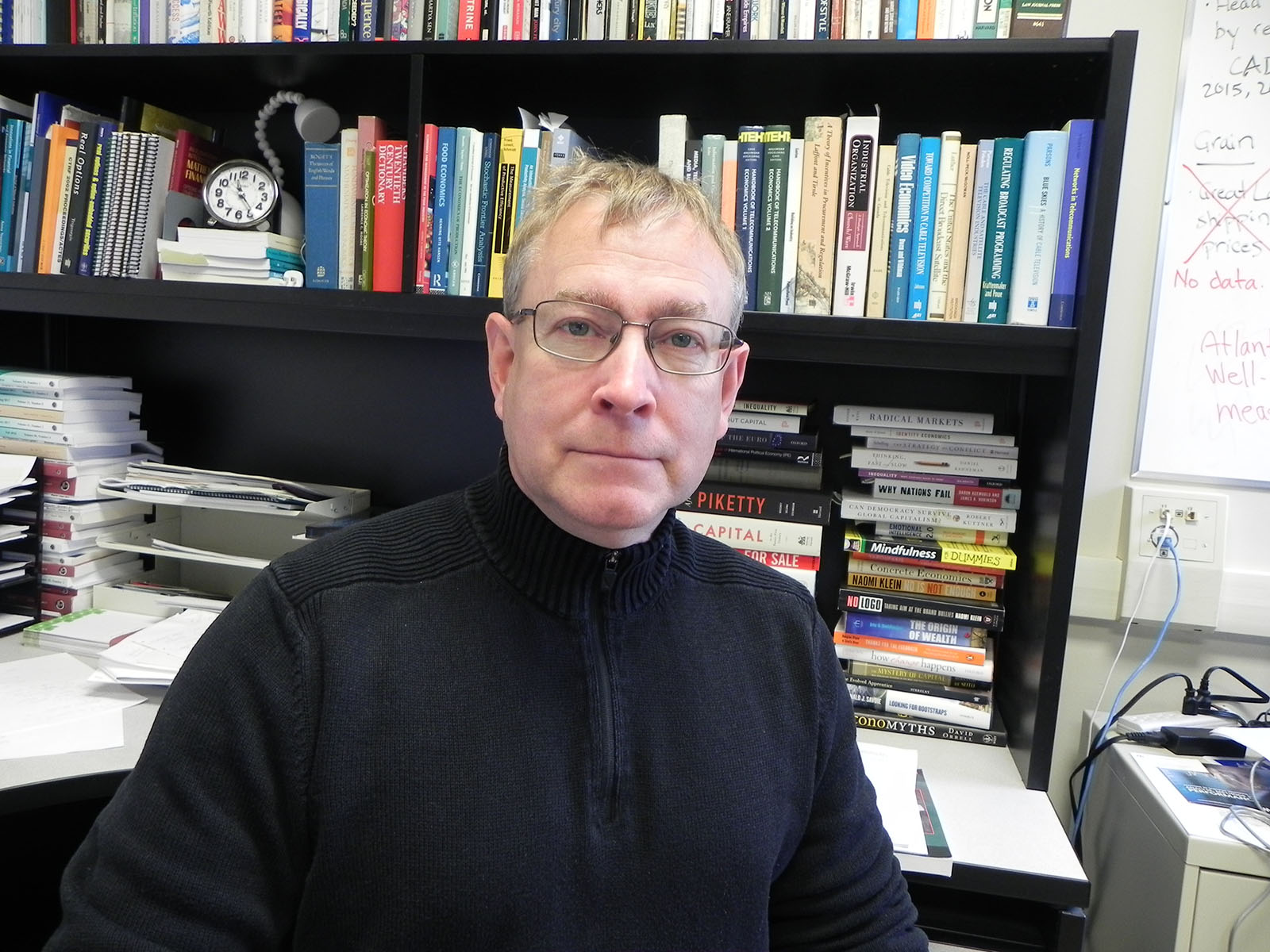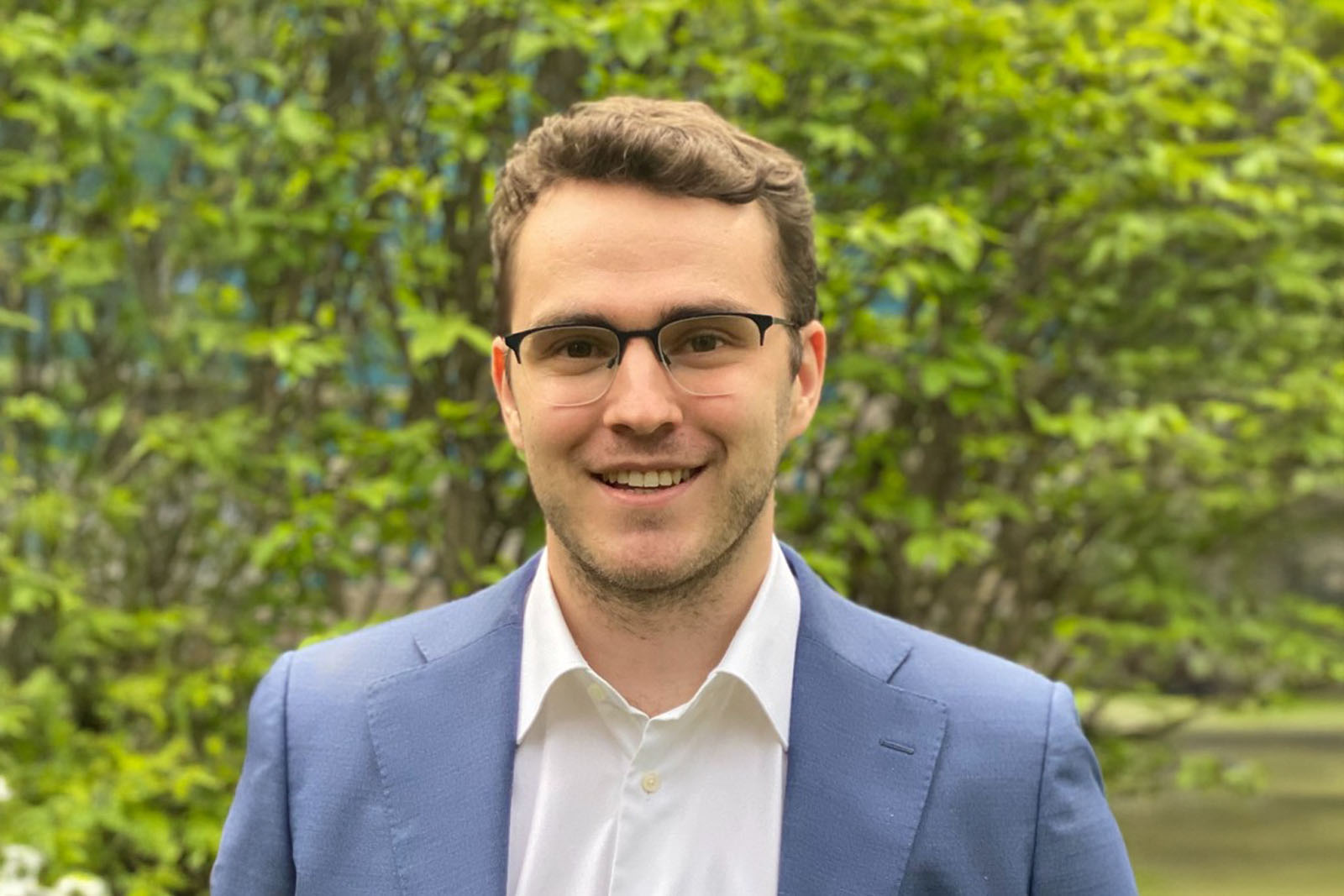Overview
To achieve understanding in economics means moving into the realm of theory, analysis, and technical terms. Ultimately the expectation is that through better understanding of economics, society will be able to remedy undesirable results and achieve better ones.
At a Glance
Curriculum
At Mount Allison, the Economics program is built around core courses in economic theory, policy analysis, mathematics, and econometrics.
Such study includes:
- economics history
- economic thought
- microeconomics
- macroeconomics
- money and banking
- international economics
*Students planning to concentrate on economics will find mathematics a valuable complementary study. Those who dislike mathematics or who do poorly in it usually encounter difficulties in economics.
Degree options
At Mount Allison, there are different degree options in Economics depending on your interests and career goals.
Bachelor of Arts (BA)
As a Bachelor of Arts student, you'll combine your economics courses with courses in arts and letters, humanities, and social sciences. Interdisciplinary options are available with philosophy, political science, and mathematics.
- BA major or honours in Economics
- BA major or honours in Philosophy, Politics, and Economics (PPE)
- BA honours in Economics and Mathematics
- BA major in Computer Science and Economics
Bachelor of Commerce (BComm)
As a Bachelor of Commerce student, you'll combine your Commerce degree with economics.
- BComm with honours in Economics
Minors
Minors consist of a selection of core and elective Economics courses (24 credits) and can be combined with any degree.
- Minor in Economics
- Minor in International Economics and Business
Not sure about the difference between a major, a minor, an honours, and a certificate?
ECON 1001 — Principles of Microeconomics
This course introduces the study of Economics and the nature of microeconomic problems including the behaviour of consumers and firms in different markets, and the results of their actions as manifested in production, costs, and prices, market efficiency, and market failure.
ECON 1011 — Principles of Macroeconomics
This course introduces the study of Economics and the nature of macroeconomic problems such as the determinants of the level of national income, employment, and the accompanying stabilization problems and policies. Topics also include money and banking, international trade, exchange rates, and the problems of inflation.
ECON 2301 — Economic Issues in Canadian Public Policy
This course introduces analytical methods used by social scientists examining Canadian social and economic policy by studying issues that arise perennially. Topics may include: unemployment and government policy, Canada and the global economy, social security reform, regionalism, education policy, health policy, and inflation.
ECON 2701 — Introduction to Econometrics
This course introduces statistical tools for handling data generated in uncontrolled environments and the techniques involved in their use. Topics include estimation and inference of single- and multi-variable regression models, large sample techniques, dummy variables, heteroskedasticity, and an introduction to times series.
ECON 3111 — Health Economics
This course introduces economic issues in the health care system. It examines applications of economic principles and empirical analysis to the study of health and health policies in Canadian and International contexts. Topics may include: the demand for health care, the supply of health services through health practitioners and hospitals, the economic effects of health insurance, pharmaceutical markets, economic evaluation techniques for health, health technology assessment and public policy formulation.
ECON 4531 — Economic Growth and Development: Japan and East Asia
This course focuses on the economic performance of the economies of Japan, China, and other areas of eastern Asia, emphasizing historical and major current events.
ECON 4551 — International Development
This course focuses on differences in the patterns of economic development in the world economy. It examines the developing world, national and international policies designed to improve the global distribution of income, and the economic development policies of the World Bank, the International Monetary Fund, and the United Nations.
Find a full list of economics courses in the Academic Calendar — Economics.

Faculty Spotlight
Dr. Stephen Law
Professor, Economics
Careers
Whether you're entering the job market or continuing your education, your Mount Allison degree will stand out.
Mount Allison has been recognized by Maclean's as the top primarily undergraduate university in Canada more times than any other university.
Graduates of the PPE program are broadly educated to consider complex contemporary concerns.
Our graduates also boast extraordinarily high acceptance rates to top graduate programs and professional schools such as law and medicine.
Popular career paths for Economics graduates include:
- economist for government, business, non-profit, or NGO
- economic policy analyst/consultant
- business development officer
- market research/policy analyst
- financial/investment analyst
- financial planner/advisor
- mortgage/insurance broker
- insurance underwriter/adjuster
- economic development officer
- accountant
- labour relations specialist
- population studies analyst
Alumni Spotlight
Ian Nason ('15)
Bachelor of Arts, Economics
Economic consultant specializing in complex health care, and antitrust and competition litigation

Testimonials

Within the economics department, and Mount Allison, students are more than just a number. The relationships I have built with professors and other economics students will last a lifetime, and for that I will forever be grateful I came to MtA.

The economics program at MtA is incredibly personal — small classes and supportive professors made all the difference. It challenged me to think critically, apply theory to real life, and walk away with both technical skills and life lessons I'll carry forward.
Extras
L.R. Wilson Internships in Public Service and Public Policy
The L.R. Wilson Internships, one of Mount Allison's most prestigious internship programs, provide students studying philosophy, politics, and economics with an opportunity to gain valuable experience working as a summer intern in an organization with a public policy or public service focus.
The internships, valued at $10,000 each, were established in 2015 by Lynton R. (Red) Wilson, retired Chairman, President and CEO of BCE Inc., Mount Allison honorary degree holder, and long-time champion of public service.
Past Wilson interns have worked with organizations in Canada and around the world, including:
- Ottawa-based NGO Inter Pares
- Policy Horizons Canada
- the Government of Canada
- the Governments of New Brunswick and Nova Scotia
- the Town of Sackville
- the Green Party of New Brunswick
- the Great Divide Trail Association
- Montreal-based organization Food Secure Canada
- Colombia-based Organizacion Femenina Popular
- Laterite, a research and data analysis organization based in Rwanda
/current-students/department-economics
Admission Requirements
Academic Awards
Mount A is #2 in student awards
Maclean’s ranks Mount Allison second in student and faculty awards in its latest University Rankings. To date, 56 Mount Allison students have become Rhodes Scholars — one of the best per capita records in Canada.


